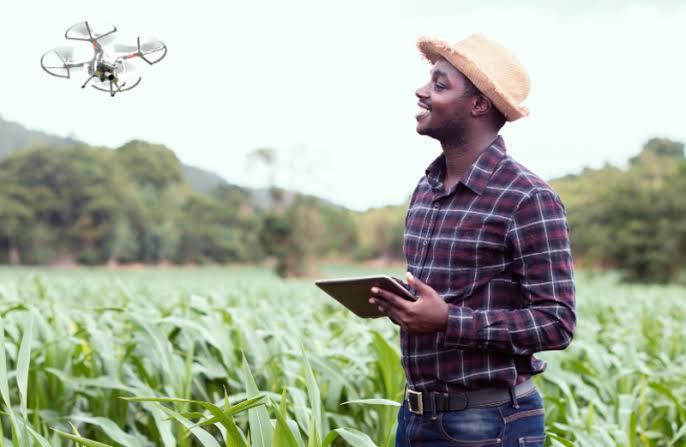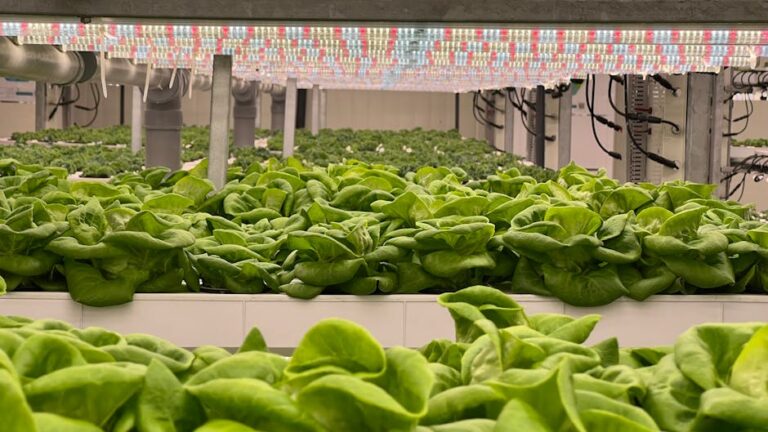
Drones are increasingly enhancing agricultural efficiency in Africa, offering innovative solutions to age-old challenges faced by the continent’s farmers. With the growing demand for food security and efficient land use, the application of drones in agriculture is proving to be a game-changer. From crop monitoring to precision spraying, drones provide actionable insights and data-driven farming techniques, significantly improving productivity.
Precision Agriculture with Drones
One of the most transformative roles drones play is in the field of precision agriculture. By deploying drones equipped with advanced imaging sensors, farmers can closely monitor their crops and fields. This real-time data enables farmers to understand the exact needs of their crops, such as water, fertilizer, and pest control. The use of drones in agriculture allows for targeted interventions that save resources and increase yields.
Advantages of Precision Agriculture
- Increased Crop Yields: Drones allow farmers to apply fertilizers and pesticides with precision, improving plant health and reducing waste.
- Cost Reduction: By providing accurate data on crop health, drones help farmers reduce unnecessary spending on resources.
- Efficient Water Management: Drone technology helps identify areas of over- or under-watering, enabling better irrigation practices.
Advanced Crop Monitoring and Data Analysis
Advanced crop monitoring is another critical way in which drones are enhancing agricultural efficiency in Africa. Traditional crop inspection methods are often time-consuming and less accurate. Drones equipped with high-resolution cameras and multispectral sensors can capture detailed images of large farmlands within minutes. These images are processed using advanced analytics, providing farmers with actionable insights.
For instance, drone technology has proven effective in identifying crop diseases before they spread, allowing farmers to take early action and prevent widespread damage. In countries like Kenya and Nigeria, where large-scale agriculture is prominent, drones have been deployed to monitor crops like maize, sugarcane, and tea plantations. This not only saves time but also ensures more accurate interventions.
Efficient Land Management and Resource Allocation
Efficient land management is crucial to enhancing agricultural efficiency in Africa, where smallholder farmers account for a large portion of food production. Drones provide aerial imagery and maps that help farmers make informed decisions about land use, soil quality, and crop rotation. This data-driven approach allows for better resource allocation and optimal land utilization.
Examples of Improved Land Management
- Soil Analysis: Drones can capture infrared data, enabling farmers to assess soil conditions and identify areas needing attention.
- Mapping and Planning: With drone-generated maps, farmers can plan irrigation systems and planting schedules more effectively.
- Disaster Response: In case of floods or droughts, drones provide critical information on affected areas, helping farmers strategize recovery plans.
Pest and Disease Management
Drones are also becoming vital tools in pest and disease management. By identifying pest infestations early, drones help reduce crop losses significantly. In Ghana, drones have been used to detect infestations of Fall Armyworm, a notorious pest affecting maize production. Early detection through aerial surveillance has allowed farmers to contain the spread and minimize damage.
Furthermore, drones are increasingly being used to spray pesticides with precision, ensuring that chemicals are only applied where necessary. This method not only improves crop health but also minimizes the environmental impact of traditional pesticide application techniques.
Drones Revolutionizing African Agriculture
In summary, drones are enhancing agricultural efficiency in Africa by improving precision agriculture, crop monitoring, land management, and pest control. By adopting drone technology, farmers are becoming more data-driven, making informed decisions that lead to higher yields and cost savings. As drones become more accessible, their potential to revolutionize agriculture across Africa is immense. Governments and private stakeholders must work together to increase drone adoption and provide the necessary training and infrastructure to farmers.
Discover more from Amebo Media
Subscribe now to keep reading and get access to the full archive.




